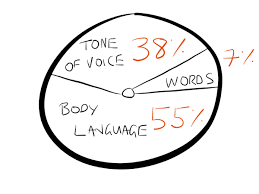The Root Causes Of Anger
The root causes of anger are:
- Dysfunctional childhood programming
- Childhood emotional invalidation
- Low self-esteem
- Strong beliefs challenged by outsiders
- Betrayal
- Lack of power
- Fear
- Desire for control
The root causes of anger depend upon the type of anger you are experiencing. We will examine 12 types of anger and describe the root causes of anger. Later in this article, you will learn the 3 simple steps to calm an angry person in seconds. The secret is to learn how to listen the anger into existence. If you want to skip to the bottom of this article, feel free to do so. If you want to master the skill of listening anger into existence, enroll in our bundled courses here.
Anger Avoidance
Anger avoidance occurs when people are angry, but they avoid repress their anger. They stop feeling their anger and they just bury it so they don’t have to experience anger at all. The root causes of anger avoidance are childhood programming that teaches that being angry is bad, evil, and wrong. The problem with anger avoidance is that the stress that is causing the anger avoidance in the first place is not getting resolved. This will cause severe health problems as the cortisol levels begin to break down the immune system and digestive efficiency.
The other problem with anger avoidance is that, like a water balloon, ithere’s going to be a massive explosion of anger that may be highly destructive. The way we deal with the root causes of anger avoidance is to learning how to listen the anger into existence.
I’ll be talking more about later in this article. We have a bundled series of courses that will teach you how to do this. Click Here To Learn More.
Passive-Aggressive Anger
The next anger is passive-aggressive anger, which occurs when the passive-aggressive person says “yes” and does “no.”
The root cause of this anger is the feeling of being in a weak power position. The passive-aggressive can’t express anger appropriately, fearing punishment or rejection. You see passive-aggressive anger in relationships and in workplace conflicts. They display their anger with a smiley face and backstab the offenders in the background. This is a destructive kind of behavior because it’s not transparent. The actual root causes of the anger are not talked about.
Betrayal Anger
The third kind of anger is called betrayal anger. The root cause of betrayal anger occurs when someone has breached trust with you that injures you. Betrayal anger is deep and intense because you feel like you’ve been violated; your identity has been threatened; the rock that you thought you stood on has turned out to be sand.
What if you are confronted with betrayal anger. For example, somebody may unfairly accuse you of betraying them. Your immediate response will be, of course, to defend, justify, excuse, explain, or problem solve. When engage in one of these common strategies, you just make things worse because the person who is accusing you of betrayal anger doesn’t want the problem fixed. The person accusing you of betrayal just wants to be validated. Later in this article, I will explain how you validate someone suffering from betrayal anger.
Disrespect Anger
The next anger is called is disrespect anger. The root cause of this anger occurs when somebody has disrespected you.
Maybe they haven’t listened to you; maybe they have ignored you; maybe they have called you names, insulted you, or diminished you in some way. Disrespect anger that can also be deep-seated and intense.
The secret to dealing with disrespect anger, whether you’re experiencing it yourself or are accused of disrespect, is to focus on the emotion. For example, if you felt that anger arise, you would say something yourself like “I feel really angry. I feel really disrespected.”

If you find that you’re being frequently disrespected, you may not respect yourself. You can only be respected by others to the degree that you respect yourself.
Paranoid Anger
The next kind of anger is paranoid anger.
The root causes of anger arise when someone feels like everybody’s out to get them. They get angry about it. This is a difficult kind of anger to deal with because it may be a deep-seated paranoia or fear of harm by others.
The solution to dealing with paranoid anger is not to deny it such as, “Oh, you’re crazy. What are you thinking about? Why are you accusing me of this? Why do you think I’m going to harm you,” and so forth. These are the typical responses that you might make to paranoid anger. Of course, these responses escalate the problem even further.
Sudden Anger
The next type of anger is sudden anger. We have all experienced to this sudden anger occurs in people who are highly reactive.
The root causes of anger are self-protective mechanisms programmed from childhood that when triggered, cause you to explode at people in the right circumstances in the right environment. What makes sudden anger scary is that you never really know when it’s going to happen.
If you live with someone who as a sudden anger trigger, you feel like you are walking barefoot on broken glass. You are tiptoeing around a spouse, partner or a parent because you never know when they’re going to go off. That creates a lot of anxiety and stress.

When somebody is reactive and explodes, don’t take personal responsibility for their anger. Don’t try to problem-solve, don’t try to fix things. The only thing that will work is to listen them into existence. We’ll get to how to do it in a moment.
Shame Anger
The next kind of anger is shame anger.

The root causes of anger occur when we feel embarrassed, humiliated ashamed or embarrassed. Like most other angers, shame anger triggers originate in childhood programming.
Shame anger can be directed at you, and you may not even be the cause of it. It’s just that somebody got triggered and accused you of unjustly shaming them.
Shame is painful so people will become angry rather than admit to being shamed.
Shame anger is difficult to detect, but if you see intense anger, it could have a shame element attached to it. 12 Powerful Benefits of Emotional Awareness
Deliberate Anger
The next anger is deliberate anger. Deliberate anger is instrumental because it is used to manipulate, scare, intimidate and coerce others to their to their bidding.
We don’t see a lot of deliberate anger, but there are people out there who are manipulative and exploitative. They will use deliberate anger as a way of conveying information such as, ” I’m, tough. Don’t cross this line.”

With deliberate anger, the solution is not to justify defend, appease, rationalize, or defend. The key is to acknowledge the anger and reflect back the anger with these simple words: “You’re, really pissed off. You’re, really angry. You feel like you’ve, been unfairly treated. You feel, like you haven’t been heard.”
Addictive Anger
The next anger is addictive anger. The root causes of anger occur when people get high off of their anger.
These people get a dopamine release when they get angry that gives thema feeling of power and superiority. However, it’s a fleeting sense power and comes with a heck of a hangover. Nevertheless, there are people who are addicted to anger because they feel good within themselves because it’s their way of dealing with an intractable problem that they otherwise do not have the capacity to solve.
Habitual Anger
The next anger is habitual anger. The root cause of habitual anger occurs with people who have just gotten into the habit of being grumpy and mad all the time. They’re, probably not even aware that they’re grumpy and mad. Of course, people start to avoid them because they’re unpleasant to be around, and that just makes them even grumpier. They become more lonely and feel abandoned, which just feeds their anger. Why Am I So Angry
You can help people break out of habitual anger by acknowledging it. “You’re angry. You’re really frustrated. Life didn’t turn out the way that you thought it should.”,
This kind of reflection, amazingly enough, will help people who have habitual anger move into a place of calm. Once they start experiencing that calm state again, their anger will tend to go away.
Moral Anger
The next type of anger is moral anger. The root causes of moral anger are moral indignation, violations of deep-seated values, violations our sense of right or wrong, or attacks on important identities.
Typically, a belief has been challenged, and rather than examine whether or not the challenge has any validity or not, we become morally righteous and indignant that somebody should have the temerity to challenge what we believe to be sacred. Most of the political polarization today is based on moral anger that stems from belief structures people don’t want challenged.
People hold on to strong beliefs, regardless of their actual validity. When those beliefs are challenged, they become righteously indignant. The indignation can pull them back into other kinds of anger, like addictive anger, because it feels good to be outraged.
The experience is something like, “I feel like I’m powerful because I’m angry. I’m standing 10 feet tall because I’m angry. I’m justified because they can’t get away with it.They’re bad people for what they do.”
To address moral address the anger, reflect back all of the emotions. “You’re, really angry. You feel like there’s been an injustice. You are really pissed off, that somebody is challenging your beliefs. You feel like there’s been a a wrong that can’t be righted.” Byreflecting back the anger and the emotions underneath the anger, you can oftentimes calm a morally indignant person down.
Hate Anger
The next kind of anger is, of course, the most intense kind of anger, which is hate. The root cause of hatred is usually betrayal. The hatred, is intense; it’s deep, it can’t be mitigated. The hatred is breaking relationships and engaging in destructive, behavior.
Hatred is difficult to deal with because it’s so embedded and so deep. If you listen the hatred into existence, as I will how you in a moment, you can at least calm it down long enough to have a conversation around where the hatred comes from and whether or not the hatred is really serving the person who is expressing the hatred. Oftentimes, they’ll find out that no, the hatred really isn’t serving them. They’re just using the hatred as a way of dealing with the pain of betrayal or the outrageousness of a moral anger.
So again, the secret is to focus on the emotions, not the words. Let’s see how to do that in the next section.
How To Calm An Angry Person In Seconds
There are three steps to listening anger into existence.
Ignore The Words
First, ignore the words.You don’t need to listen to them anymore.
If you ignore the words you’re not likely to get triggered. You’re going to free up bandwidth that will allow you to do the next two steps. Learning how to ignore the words takes a little bit of practice and some coaching because we’re conditioned to listen to words and ignore feelings.
Studies have shown that the verbal content of a human communication is less than seven percent of the overall information being conveyed by one person to another.
93% of all communication is non-verbal, so we can afford to ignore the words for a few seconds.

Read The Emotions
The second step is to learn how to read the emotions.
You might think to yourself, “Oh, I could never read the emotions of anybody. I’m really horrible at that.I don’t even know what I’m feeling.” Well, the truth is that we all have an innate ability to read and understand the emotions of other people. This is something that evolution has granted us because long before there was language, humans had to be able to communicate with each other. They did it non-verbally and had to be able to instantly understand the emotions and motivations of others.
And, of course, when they met strangers, they had to decide whether those people were friends or foes. If they misread the emotions, they were cleaned out of the gene pool. So today, we have brains that are highly sensitive to reading the emotions of other people.
The problem is, we’ve, never been trained how to use this innate capability. For thousand years, we’ve been taught that emotions are bad; emotions are evil; and we should ignore our emotions and try to be rational. That myth is wrong. Neuroscience tells us we’re, 98% emotional and only 2% rational.
The second step is to learn how to read emotions.
Reflect The Emotions With A “You” Statement
The third step – and this is also very counter-intuitive – is to reflect the emotions back to the angry person with a simple “you” statement.
“You’re angry. You’re pissed off. You’re anxious. You’re scared. You feel disrespected. You feel like you’ve been treated unjustly.”
Your tone of voice will be appropriate to the circumstance.
What you’re not going to do is use the old active listening stuff that doesn’t work.
Instead, listen the anger into existence by ignoring the words, reading the emotions, and reflecting the emotions with a “you” statement.
Unlock The Hidden Genius Of Your Emotions By Listening Others Into Existence
This simple, powerful set of courses will change your life and the lives around you forever!



Lot’s of resources here for you. Take a look at the Developing Emotional Competency courses under Training.
I read this hoping to learn how to stop being angry myself?